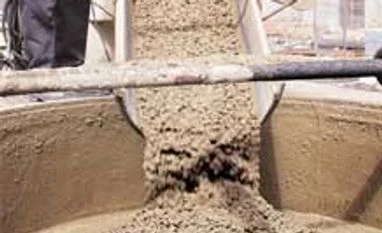Dalmia Cement Bharat Limited (DCBL), a subsidiary of Dalmia Bharat Limited, has signed a co-operation agreement with the International Finance Corporation (IFC) to conduct resource efficiency assessments and mobilise investments at its manufacturing facilities. Under the agreement, Dalmia Cement has initiated phase-II, in which the feasibility study of 27 technical papers of the Low Carbon technology roadmap will be undertaken to establish the implementation potential.
This initiative will help Dalmia Cement identify improvement opportunities in energy consumption, leading to lower GHG emission and contributing to sustainability and green cement. The phase I of the initiative (FY 2011-2013) was developed in partnership with World Business Council for Sustainable Development (WBCSD)'s Cement Sustainability Initiative (CSI) and the International Energy Agency (IEA), resulted in development of 27 technical papers on various aspects of manufacturing of cement and an overall GHG emissions roadmap for Indian cement industry.
As a continuation of phase –I, the phase-II part of the project entails taking up a feasibility study at DCBL’s Dalmiapuram plant for assessing the suitability of implementation of the various low carbon technologies. Dalmiapuram unit would be assessed on improvement opportunities in five areas namely energy efficiency, product mix/clinker factor/blending, alternate fuel & raw materials, waste heat recovery and renewable energy.
“Imbibing sustainable practices in our plants has been a key focus area for us at Dalmia Cement. This agreement will pave the way to making our Dalmiapuram plant even more energy efficient. We are looking forward to IFC’s guidance and advisory support to implement this,” said Mahendra Singhi, Group CEO Cement, DCBL.
“Reducing carbon emission is imperative for a clean, pollution-free environment. This can be achieved by implementing sustainable practices and using alternate fuels and raw materials. We are happy to be associated on this project and explore ways to implement green technology,” said Chandrasekar Govindarajalu, team leader, clean energy and resource efficiency South Asia, IFC.
This initiative will help Dalmia Cement identify improvement opportunities in energy consumption, leading to lower GHG emission and contributing to sustainability and green cement. The phase I of the initiative (FY 2011-2013) was developed in partnership with World Business Council for Sustainable Development (WBCSD)'s Cement Sustainability Initiative (CSI) and the International Energy Agency (IEA), resulted in development of 27 technical papers on various aspects of manufacturing of cement and an overall GHG emissions roadmap for Indian cement industry.
As a continuation of phase –I, the phase-II part of the project entails taking up a feasibility study at DCBL’s Dalmiapuram plant for assessing the suitability of implementation of the various low carbon technologies. Dalmiapuram unit would be assessed on improvement opportunities in five areas namely energy efficiency, product mix/clinker factor/blending, alternate fuel & raw materials, waste heat recovery and renewable energy.
“Imbibing sustainable practices in our plants has been a key focus area for us at Dalmia Cement. This agreement will pave the way to making our Dalmiapuram plant even more energy efficient. We are looking forward to IFC’s guidance and advisory support to implement this,” said Mahendra Singhi, Group CEO Cement, DCBL.
“Reducing carbon emission is imperative for a clean, pollution-free environment. This can be achieved by implementing sustainable practices and using alternate fuels and raw materials. We are happy to be associated on this project and explore ways to implement green technology,” said Chandrasekar Govindarajalu, team leader, clean energy and resource efficiency South Asia, IFC.
)